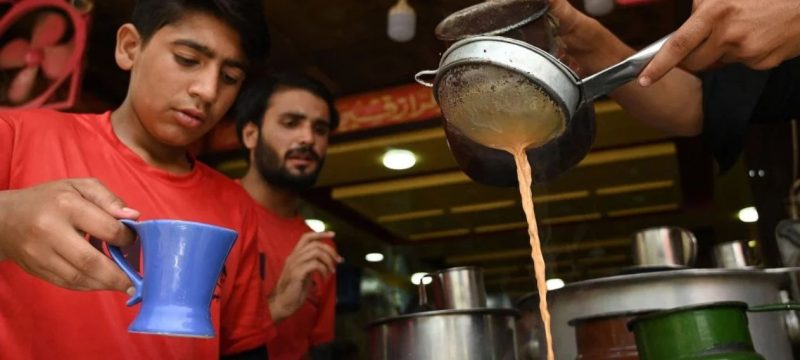Pakistanis spent more than Rs179 billion on tea during the fiscal year 2024-25, according to official records.
Despite a slight drop in tea imports, the overall import bill remained high due to inflation and currency depreciation. Tea continues to be a major household staple across the country.
As per government data, Pakistan imported 246,514 metric tons of tea in FY2024-25. This cost the country around $629 million. Compared to the previous year, when 259,000 metric tons were imported, this marks a 4.2% drop in volume.
Still, the total spending stayed high, reflecting the consistent demand for tea. In June 2025 alone, Pakistan imported 19,804 metric tons of tea. The country spent more than Rs14.18 billion ($49.7 million) on it.
This shows a 16.94% drop in tea imports compared to May 2025, when 21,971 metric tons were brought in. However, May saw the highest monthly tea bill of the year at almost $60 million.
Experts say the slight decrease in imported quantity may point to changes in consumption habits or stricter import policies. But the spending figures suggest tea still holds a strong place in daily life.
Pakistan is one of the largest tea-importing nations in the world. Tea is part of daily routines and an essential aspect of local culture and hospitality.
Economists have raised concerns about the country’s growing trade deficit. They warn that large tea imports put extra pressure on foreign exchange reserves.
In recent years, the government has considered limiting luxury imports. However, tea is usually excluded from such restrictions because of its deep social and cultural value.
Even with economic pressures, Pakistan’s love for tea shows no signs of slowing. The nation’s Rs179bn chai bill is a clear sign of how vital the beverage is in every home.
Meanwhile, road behavior remains another concern as a woman in Lahore was caught chasing a driver after a minor accident.









